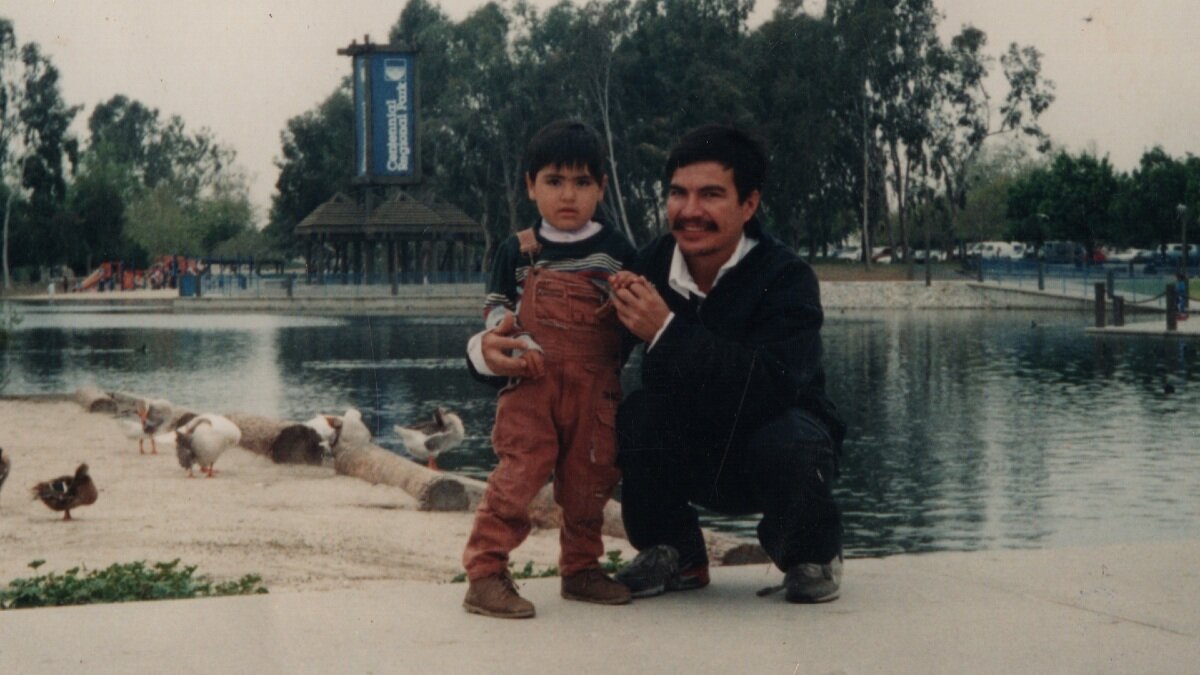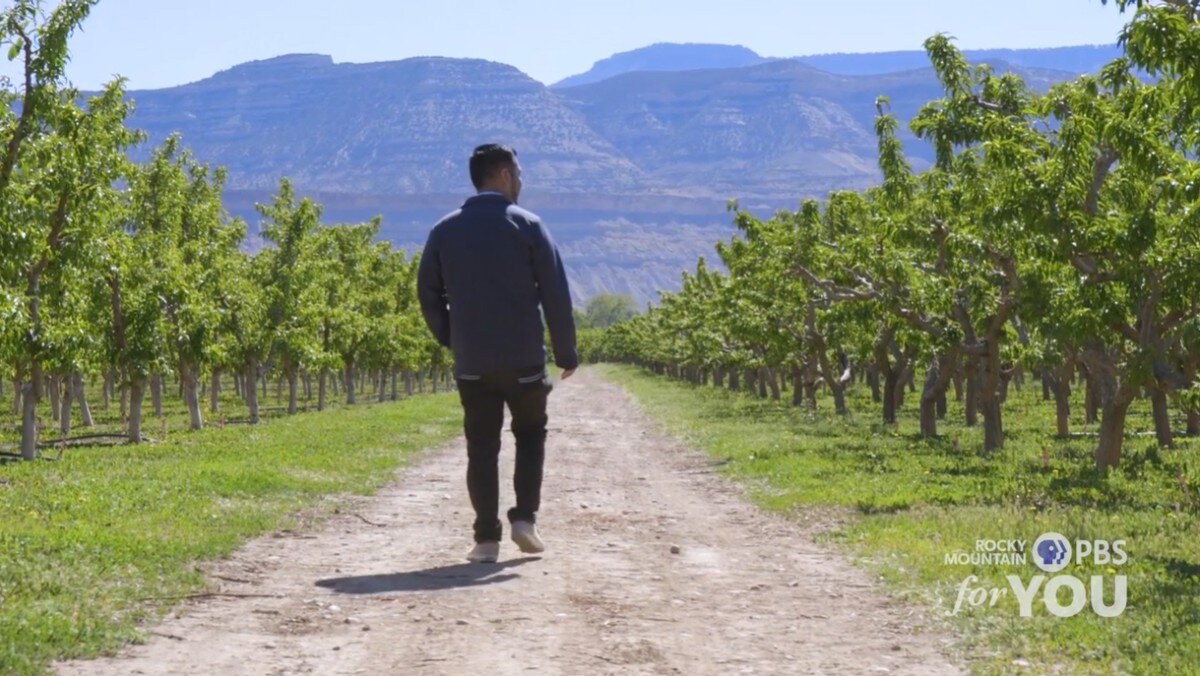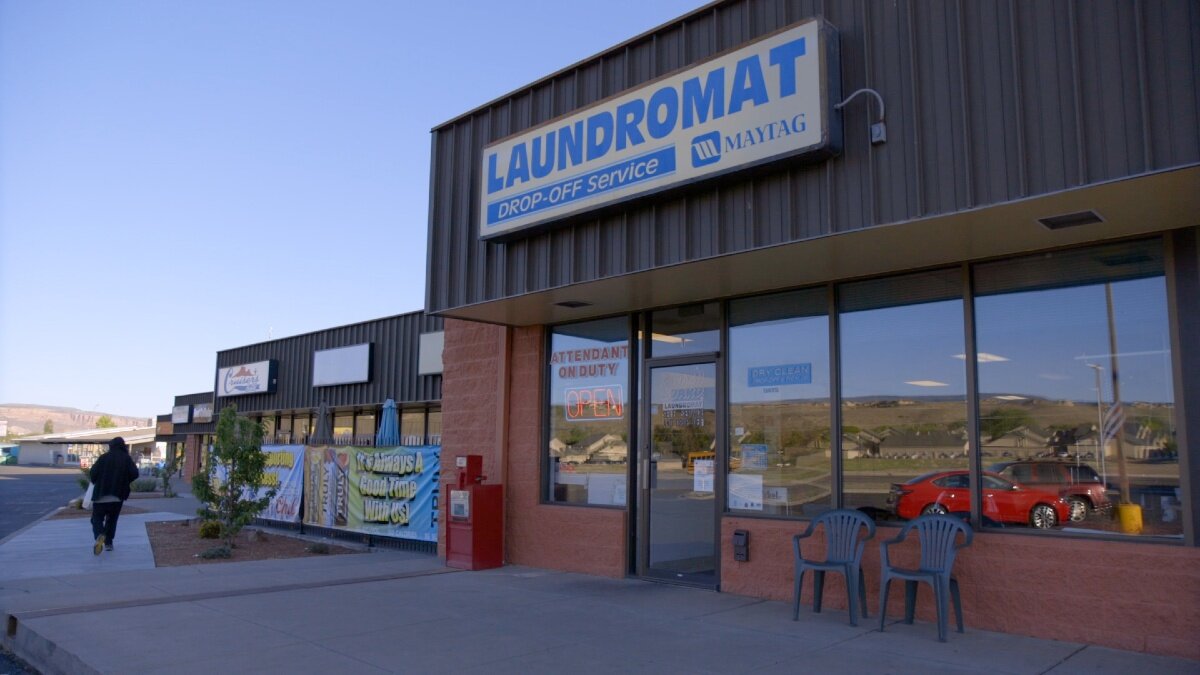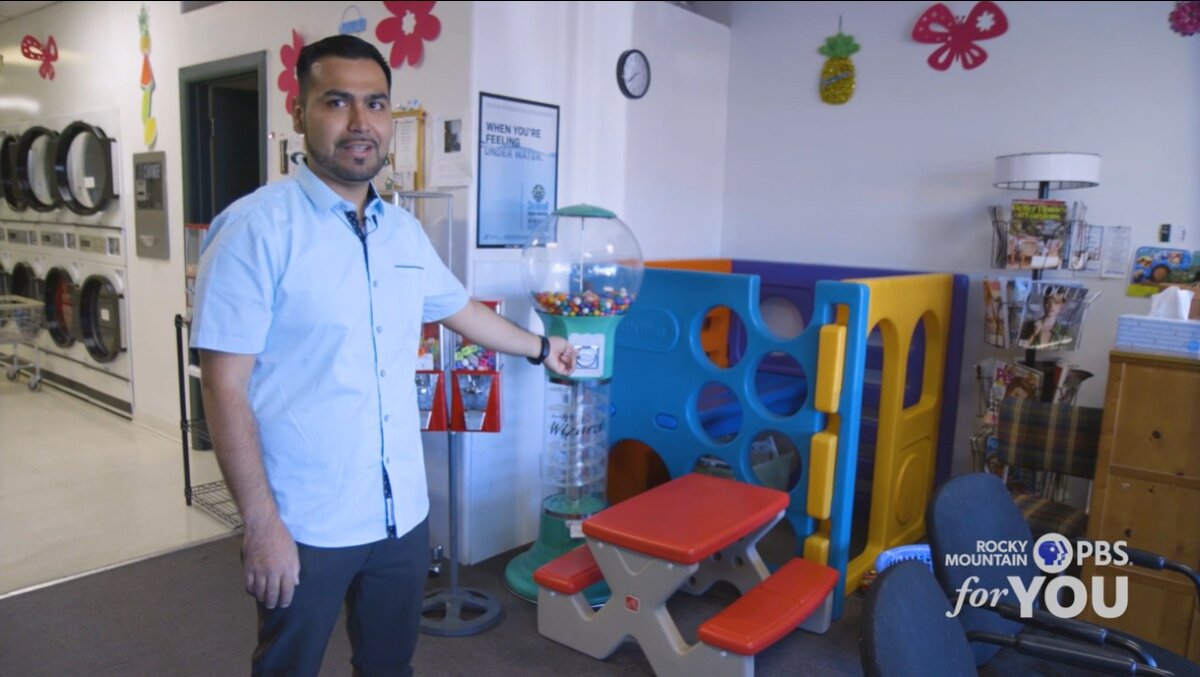From basket to business owner: Ruben Pacheco's inspiring path to citizenship

GRAND JUNCTION, Colo. — When Ruben Pacheco was just one year old, he crossed into the United Sates for the first time, hidden under a pile of clothes in a laundry basket. Now, nearly 30 years later, Pacheco owns a laundromat.
He finds the situation "ironic," he explains with a smile. Pacheco is the owner of Washboard Laundromat in Grand Junction. One of the best parts of his job, he said, is interacting with the patrons.
"People from all over the world have come here, and I just get to learn a little about them, and almost take a piece from them." Pacheco said. "And they take a piece from me."
Pacheco’s story begins in the early 1990s. His father was working in the United States, sending money back to support his family on the other side of the border, in Mexico. Communication was a challenge and his mother worried for his safety. By 1993, Pacheco's mother decided that enough was enough, and brought Ruben and his three siblings across the border to reunite them with their father.
Hidden under clothes and packed into a laundry basket in the back of a car, one-year-old Ruben and his family waited in dead silence as they were snuck through the border, crossing into San Diego. The Pacheco family found joy and relief in reuniting with their father, but the hardships that come with being undocumented were waiting for them.
When he was five years old, Pacheco and his family moved to Grand Junction. For him, life was normal. Pacheco grew up watching cartoons, going to Disneyland, and speaking English as his native language. This was his home, and he felt he had the same freedoms and rights that American citizens enjoyed. It would not be until his teenage years that he would fully realize the challenges presented by his immigration status.
As he became older, Ruben realized he was growing up in a world of fear.
“I remember walking into Big Lots, and I used to walk with my hands like this,” Pacheco explained, holding his hands up by his head. “Because I thought they were looking at the cameras thinking I was going to steal something. I’ve never stolen anything.”

By high school, Ruben had become aware that he was not living in the country as a legal immigrant. Thoughts of “why am I here?” clouded Pacheco’s mind in school, causing panic attacks, headaches and depression. He even visited the emergency room once because a panic attack left him unable to move his hands.
"I was letting fear [and] depression get to me," he said. "I struggled with that."
In 2006, Pacheco, along with one brother and one sister, dropped out of high school. “If you're not going to go to school, then you're going to work,” Pacheco's father told him. And Pacheco agreed.
With the help of his mother's connections in the community, Pacheco and his sister found work at Nolan's Orchard, a local peach orchard in Palisade. While Pacheco weighed peaches, his sister sorted them. The work was hard and the pay was minimal, though fair, according to Pacheco.
After the first day, his sister quit. Pacheco would go at least another month working at the orchard. He became fond of the owner and coworkers he worked alongside, saying they treated him like family. But over time, the life of a farmworker became overwhelming for Pacheco.

His sister called him with a proposition. She had gotten a job at a local laundromat and offered for him to apply, confident that he too would be hired, and he was. In 2008, Pacheco began working at the Washboard Laundromat. It wasn't the most flattering job, and he wanted to quit many times, but every time the thought came: “where am I going to go?” And so Ruben stayed. For 13 years and counting.
Due to fear of deportation, Pacheco worked to avoid situations where he would ever have to talk to a police officer. And he did. He never got so much as a speeding ticket.
But one day while driving with his brother, the dreaded flashing lights appeared behind his brother's Cadillac. Both knew what was about to unfold. Pacheco witnessed his brother's arrest; It would be the last sight of him for three years. Pacheco, along with the rest of his family, was devastated.
Working at the laundromat was now vital for the survival of Pacheco’s family. He now had to fill the economic void left by his brother's detainment by ICE.
Much of Pacheco's paychecks went to immigration lawyers to fight his brother's case, thinking he would not survive if he was deported. It would still be years until he would see his brother again.

“My mom was always struggling to pay the bills,” Pacheco said through tears. “Working at the laundromat, I would always give her my paychecks for, like, three years. I didn’t care. You need money, Mom? Okay. Here’s my paycheck.”
While attending church and being involved with the church youth group, Ruben met someone special: Karina Montoya. Together they enjoyed worship and the energy of the youth surrounding them. She only spoke Spanish and he only spoke English, but for Pacheco, this was an obstacle worth overcoming. Together, they taught each other how to communicate. Eventually, they got married and started a family of their own.
For Montoya, circumstances were different, and she was able to attain citizenship after a five-year waiting period. Pacheco now had an outlet to gain his legal residency, although it hadn’t motivated his relationship with Montoya. After years of living in fear and acquiring what he calls “the immigrant mindset,” Pacheco was afraid that his undocumented status would be discovered and prosecuted. But all that changed after not being able to attend his wife's naturalization ceremony, where Ruben was left crying in the parking lot. He spent days in distress.
After mustering the courage to apply, Pacheco finally received his work visa in February 2021, after several months of delay due to the COVID-19 pandemic. It was a tremendous relief.
At the age of 28, Pacheco could stop living in fear. He could now cast his vote, apply for student loans, and get a job without immediate rejection. But he wasn't worried about that last part: After working at Washboard Laundromat for 13 years, the owners offered the business to Pacheco, and he accepted. Success was now a reality.

For Pacheco, success is defined by day-to-day social interactions. He says that it was the customers that kept him at the laundromat. Decorated with a map and push-pins to mark where people come from, the laundromat has become a melting pot of ethnic backgrounds and experiences. The customers know Pacheco and respect his story. In a world where he never felt socially accepted, Pacheco says every time he was at the laundromat, he was accepted. And for those who aren’t initially sympathetic to the plight of immigrant workers in the United States, Pacheco shares his upbringing.
“I was brought here. It wasn’t my choice,” Pacheco explained. “And this whole idea of [immigrating] the 'right way' — it’s a lot harder than you think.”
“The reason you have a nice lifestyle is because of someone like me, an immigrant,” he continued. “People maybe didn’t know, but I was there folding their clothes, ironing their clothes.”
Pacheco still runs the laundromat, but has also become involved in a migrant education program in which he recruits and helps immigrants find a path to success in a world where the might feel left behind.
Included in the people Pacheco knows on their path toward citizenship is his brother, who has been reunited with the family.
Matt Thornton is a multimedia journalist at Rocky Mountain PBS. He is based in Grand Junction. You can contact him at matthewthornton@rmpbs.org.
